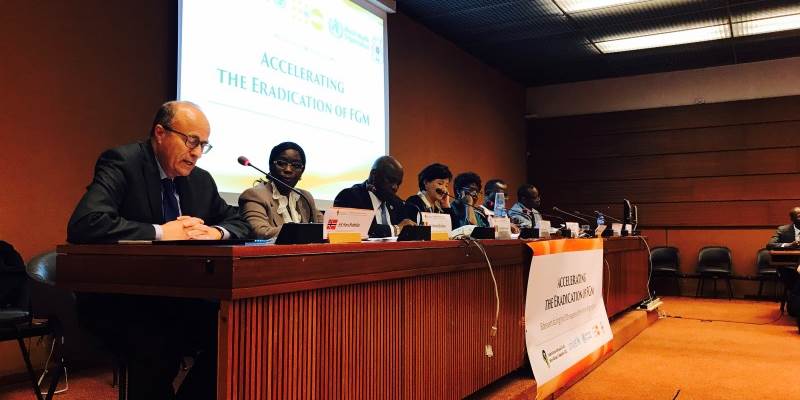Ending female genital mutilation (FGM) is a long-standing Norwegian priority. On 15 June 2017, Ambassador Hans Brattskar, Permanent Representative of Norway, participated in the panel discussion "Accelerating the Eradication of FGM" at the United Nations in Geneva, alongside representatives from the Inter-African Committee on Traditional Practices (IAC), Economic Community of West African States (ECOWAS) as well as a representative of the First Lady of Burkina Faso. The event was organized with the support of WHO, UNICEF and UNFPA.
A global problem
FGM is a practice that involves altering or injuring the female genitalia for non-medical reasons. Globally, it is estimated that 200 million girls and women alive today have undergone some form of FGM. Every year, nearly 3 million girls are subjected to this harmful practice.
Since Norway developed its 2003 International Action Plan for Combating FGM, the issue has received increasing international attention. The inclusion of FGM in the 2015 Sustainable Development Goals placed the issue firmly on the international agenda.
A result of gender inequality
In his intervention, Ambassador Brattskar highlighted the achievements of UNFPA/UNICEF's Joint Programme on FGM/Cutting —a programme Norway has consistently supported since its establishment in 2007.
“FGM is both a result and a perpetuation of gender inequality and discrimination against women and girls. Like child early and forced marriage, rape and domestic violence, FGM must be a top priority for governments, civil society and international organizations”, said Brattskar.
The Ambassador also underscored Norway's support for the World Health Organization’s (WHO) programme to strengthen the knowledge, capacity and attitudes of health care providers and the use of evidence to improve policies and practices in African countries. In May this year, Norway’s support contributed to the launch of a set of WHO guidelines to help health workers provide better care to girls and women worldwide living with the consequences of FGM.
Signs of progress in Ethiopia
In 2004, Ethiopia became one of Norway’s priority countries in the fight against FGM. Between 2014 and 2016, Norway has channeled more than 24 million NOK to civil society partners to change local norms and practices at a community level, in addition to funds channeled through the UNFPA/UNICEF programme and other partners. Encouragingly, last year’s Demographic Health Survey (DHS) for Ethiopia shows a reduction in the prevalence of FGM in the country.
For more on FGM, see http://www.unfpa.org/female-genital-mutilation
